
Deputy Prime Minister Nguyen Chi Dung. Photo: VGP/Thu Sa
Remove bottlenecks and release held-back resources
General Secretary To Lam has just signed and issued Resolution No. 68-NQ/TW of the Politburo on private economic development, which orients eight groups of key tasks and solutions to create new momentum and new momentum to bring the "most important driving force" of the economy to develop rapidly in the coming time. Could you please tell us about the special significance of the Resolution in the current new context?
Deputy Prime Minister Nguyen Chi Dung: First of all, I think it is necessary to talk about the context in which the Resolution was born. Why was this Resolution born and what problem was it born to solve?
As we know, the private economic sector in our country has been formed and developed over many years, through many historical periods, similar to other countries, also originating from small traders, small production, small trade, gradually developing into large enterprises, large corporations, participating in value chains and building brands. This is confirmed through the figures of contribution to the economy.
Specifically, the private economic sector is contributing about 50% of the country's GDP, more than 30% of the state budget revenue and especially solving more than 82% of the labor force in the country. These are numbers that show the very large and extremely important position and role of the private economic sector.
However, some of the set targets have not been achieved, for example, by 2025, there must be 1.5 million enterprises, but by 2024, there will only be nearly 1 million enterprises and more than 5 million business households. Besides the issue of quantity, quality is also not guaranteed. The scale, potential, and capacity of enterprises are still limited in terms of technology, innovation, capital, and human resources. We do not have large corporations that lead the economy, and no enterprise has made it into the top 500 enterprises in the world. The rate of enterprises that are established but then withdraw from the market out of the total number of newly established enterprises is still very high, higher than other countries.

The ratio of enterprises per 1,000 people in our country is also lower than that of Thailand, South Korea, Japan, and Singapore. We are only on par with the Philippines, with about 9.4 enterprises per 1,000 people, showing that in terms of quantity and quality, the contribution of the private economic sector is not commensurate. In other countries, this sector often contributes about 60%, even 80% to 90% of the country's GDP. Of course, some countries include FDI in the private economic sector. If in Vietnam, including FDI, it only reaches approximately 70% of GDP, and if excluding FDI, it is only about 50%. Thus, the contribution to GDP, budget, and employment of this sector is lower than that of other countries.
The difficulties and barriers come from many causes. Although the Party and State pay great attention and have many policies, some policies may not be really accurate, correct and strong enough; or the implementation is not good.
For the first time, we boldly recognized shortcomings when we paid attention but not really properly; many policies have not been put into practice, not yet widespread enough; businesses are still mainly self-sufficient, facing difficulties in many issues, especially accessing the country's resources such as land, capital, labor, data...
The institutional system still has many problems, cumbersome procedures, high compliance costs, heavy inspection and examination work, prejudice and bias against the private business sector, which narrows trust, businesses are not bold enough to invest despite their great capacity and resources. The role, potential and internal strength of this sector have not been promoted commensurately.
In the current context, the world situation is changing very quickly, complicatedly, and unpredictably, requiring countries to restructure their economies. Domestically, after 40 years of renovation, we have achieved many great achievements, but we are also facing new requirements, we must develop faster and more sustainably to narrow the gap with other countries; achieve the development goals of the new era, aiming at two 100-year goals (2030 - the 100th anniversary of the founding of the Communist Party of Vietnam and 2045 - the 100th anniversary of the founding of the country). These are extremely important goals, requiring the mobilization and liberation of productive forces, the maximum utilization and effective use of all resources, potentials, and strengths of economic sectors.

Based on the above issues, the Politburo has proposed to issue a new Resolution. Previously, the Central Committee had Resolution No. 10 in 2017 on private economic development, but this time, the Politburo issued a Resolution to continue promoting the development of the private economic sector in the new context.
The core objective of the Resolution is to remove bottlenecks, release resources that are still being held back, and remove existing barriers so that the private economic sector can develop in a healthier and stronger way and contribute more and more to the overall development of the country in the new era.
Implementing the direction of the Secretariat, the General Secretary and Prime Minister immediately established a Steering Committee, with the Prime Minister directly as the Head of the Committee, demonstrating the Government's prompt and decisive involvement. The Steering Committee operated with a sense of responsibility, urgency, and professionalism, completing the Resolution with high quality in a short time.
The process of research and policy development is closely directed by the Central Committee, the Politburo, the Secretariat, directly by the General Secretary and the Prime Minister, as well as the active participation of ministries, branches, experts, associations, and the business community.
In just nearly 02 months, Resolution No. 68-NQ/TW was completed, issued promptly and received high appreciation.

A series of specific, groundbreaking regulations demonstrate a strong spirit of reform.
According to the Deputy Prime Minister, what are the most breakthrough and outstanding contents in this Resolution?
Deputy Prime Minister Nguyen Chi Dung: The highlight of this Resolution is first of all the change in perspective and awareness of the role and position of the private economic sector. If in the past, we identified the private economic sector as a part of the economy, then an important part of the economy, now the Resolution has taken an important step forward in affirming that the private economic sector is the most important driving force of the national economy. We have recognized and affirmed the correct role of this sector, based on the practical contributions and role of the private economy in the process of socio-economic development of the country and put the private economy in its rightful place. This is a change of extremely important significance.
Next, we also boldly give back legitimate rights to businesses, ensuring basic rights such as property rights, freedom of business, equal competition rights, and fair access to the country's resources. These rights have actually been recognized in the Constitution, for example, the provision that people and businesses are free to do business in industries that are not prohibited by law. However, in reality, there are still many barriers that limit this freedom of businesses.

In the new Resolution, the Politburo strongly affirmed that enterprises have the right to freedom of business and enjoy equality in a competitive environment.
Previously, enterprises were considered as an object to be managed, but now, we identify private enterprises as partners to join the State in building and developing the country.
We no longer place great emphasis on old-style management. All mechanisms and policies are built on the spirit of putting people and businesses at the center and as the main subject; all policies are designed to revolve around serving and creating favorable conditions for people and businesses to develop. Businesses are also given the opportunity to participate in major projects, strategic projects, and important national projects.
It can be seen that this is a revolution in thinking and institutions, leading to huge changes. For example, the policy of abandoning the "ask-give" mechanism, abandoning the "if you can't manage it, ban it" mindset - a safe mindset but one that hinders development. In the past, we sometimes created barriers ourselves, then removed them and considered it reform and innovation. This time, we proactively designed and created a favorable environment for development, so that the economic flow could circulate naturally, even making it flow faster, in the right direction, better, rather than prohibiting it.
We consider businesses as partners and have boldly shifted from the "pre-inspection" mechanism to the "post-inspection". These are huge institutional changes. Instead of managing in an "inverted cone", tightening input but loosening output, we learn from other countries' experiences and follow the "funnel" shape. That is, creating conditions for open and free input, but managing output very tightly with tools, standards, regulations, and strengthening supervision and inspection. This will help businesses reduce difficulties when entering the market, reduce costs and time.
In addition to changes in thinking, perception and perspective, as well as ensuring freedoms, the Resolution also puts forward many specific policy groups.

According to the requirements of the Politburo and the General Secretary, these policies must be truly "on point" and "correct". The Prime Minister also requested that the policies must be "breakthrough", "strong enough", and at the same time "cover" and "comprehensive" of the problems that businesses are facing, and more importantly, must be "specific", "easy to understand", "easy to remember" so that they can be "immediately implemented". Following that guiding spirit, the Resolution has proposed about 80 groups of policies, including a group of policies that clearly stipulate issues related to access to resources.
For example, regarding the issue of land and production premises - one of the biggest difficulties for businesses today, the Resolution stipulates that each locality must set aside a corresponding land fund in industrial parks and industrial clusters, with an area of about 20 hectares, or at least 5% of the clean land fund that has been invested in infrastructure, to be reserved for small and medium-sized enterprises and innovative start-ups.
In addition, these enterprises will receive a 30% reduction in land rent for a period of 5 years. For infrastructure enterprises that provide land and reduce land prices for these priority subjects, they will be deducted from the amount of land tax payable. This is a specific solution to create conditions for enterprises, especially small and medium enterprises, to access land, resolving the previous situation when infrastructure enterprises mainly prioritized leasing to large enterprises, making it difficult for small and medium enterprises with more limited needs and capacity to access.
Although Decree No. 35/2022/ND-CP on the management of industrial parks and economic zones previously stipulated that a certain percentage (3% or 5% of the area) be reserved for small businesses, the implementation was not really effective. This time, the Resolution provides more specific and innovative regulations.
Another issue that businesses are very concerned about is access to capital. The Resolution also clearly stipulates that it is necessary to develop mechanisms and policies, and have a dedicated commercial credit channel for small and medium enterprises, startups, newly established enterprises and enterprises operating in priority areas such as digital transformation and green transformation. At the same time, there must be a mechanism to support interest rates for these enterprises when necessary, possibly through state support funds, to help them both access capital and reduce capital costs.
We also boldly propose a mechanism to allow the use of more flexible forms of security such as unsecured loans or future-formed collateral, so that businesses, especially small and medium-sized enterprises – which often lack traditional collateral – can access bank loans. Previously, this was very difficult and the interest rates were high. The Resolution has expanded the regulations so that commercial banks can consider and lend more conveniently and at lower costs.
In addition, I think that inspection and examination work is also very important. The Resolution affirms that inspection and examination acts that cause harassment, duplication, and unnecessary time extension are strictly prohibited. At the same time, it ensures the principle that each year, an enterprise is only inspected and examined once, except in cases where there are clear signs of law violations or specific evidence. Along with that, I think that trying to switch to online inspection, minimizing direct inspection, to reduce hassle and create peace of mind for enterprises is a very strong reform.
Next is the issue of handling violations - a matter that businesses are also very concerned about. In handling violations, this Resolution has affirmed: For cases related to civil, administrative and economic matters, priority will be given to using administrative, civil and economic handling measures.
Another very important point is that, in cases where the provisions of the law can be understood in the direction of criminal proceedings or non-criminal proceedings (i.e. there are borderline situations), the Resolution resolutely requires no criminal proceedings. This is a very new and very prominent point.
In cases where criminal proceedings are required, priority is still given to using economic measures to remedy the consequences first and using the results of that remedy as a basis for considering and resolving the next steps, in the direction of considering reducing criminal liability if the enterprise has actively overcome the consequences. I think this content is extremely important and highly groundbreaking.
Also related to the settlement of criminal and dispute issues, two very basic issues are emphasized: Ensuring the principle of non-retroactivity for legal provisions issued later that are disadvantageous to enterprises (enterprises will not be held responsible for more disadvantageous regulations issued after the time the act occurred); Ensuring the principle of presumption of innocence in the process of investigation and trial of cases related to enterprises.
Along with that, the Resolution emphasizes the honoring, rewarding, and praising of businesses and entrepreneurs. There is a phrase in the Resolution that I really like, which is to consider entrepreneurs as "soldiers on the economic front". Because they are the ones who directly create material wealth for society, directly pay taxes, contribute to the State budget, directly solve employment for workers and directly participate in the process of promoting the development of the country.
The Resolution affirms the new role and mission of the private economic sector; encourages and honors businesses so that they can feel secure and confident in their intelligence, mettle and capacity, and participate in the development and construction of the country.
In addition, there are a number of issues that I believe have a very important impact on businesses and this business sector. One point strongly affirmed in the Resolution is that the State must ensure its role in creating development and must not intervene with administrative measures that go against market principles and distort the principles of the market economy.
Regarding the reduction of administrative procedures and the creation of a favorable and attractive investment and business environment, the Resolution stipulates very specifically: By 2025, it is necessary to ensure a reduction of at least 30% of the time to process administrative procedures, 30% of business conditions and 30% of compliance costs for businesses.
Regarding financial measures, the Resolution advocates abolishing business license fees. In addition, newly established enterprises are exempted from corporate income tax for 3 years from the date of commencement of operation, and are exempted from factory rent for the first 3 years.
Another very practical content on science and technology, innovation and digital transformation: The Resolution designs a legal framework for a controlled testing mechanism, which we often call a "sandbox". For research and development (R&D) activities, the Resolution allows enterprises to double (200%) the actual costs into deductible expenses when calculating corporate income tax. At the same time, enterprises are allowed to deduct up to 20% of pre-tax profits to establish a fund for science and technology development and innovation. These are extremely important policies.
In this resolution, there are also mechanisms and policies to strengthen the connection between enterprises with each other, as well as between domestic private enterprises and FDI enterprises. Currently, the connection between these two sectors is still quite fragmented, making it difficult to create complete value chains and supply chains. Resolution 68-NQ/TW provides mechanisms and policies to encourage enterprises to form value chains and supply chains together; strengthen the connection between domestic enterprises and foreign enterprises so that we can take advantage of the advantages that the FDI sector brings to the economy.
Finally, it is a truly "hit" and "correct" mechanism to encourage individual business households to develop and boldly convert to operating in the form of enterprises. For example, simplifying financial and accounting regulations for business households; providing consulting services, legal support; providing free digital platforms for them to apply technology. In particular, the Resolution advocates eliminating the lump-sum tax form. These measures are both motivation and pressure for business households to switch to operating in the form of enterprises, but must still ensure that these regulations are suitable to the conditions and characteristics of business households, avoiding the situation where business households are not bold enough to convert or encounter difficulties after conversion.
Must be implemented immediately so that the policy can quickly come into life.
So what does the Deputy Prime Minister expect about the impacts of the Resolution on the development of the private economy in our country, as well as the next steps of implementation once the Resolution is in place?
Deputy Prime Minister Nguyen Chi Dung : Regarding the implementation requirements, the Politburo, the General Secretary and the Prime Minister have directed that after Resolution 68/NQ-TW is issued, it must be implemented immediately, organized immediately and put into practice quickly. Therefore, in the next few days, the Ministry of Finance - the agency assigned to preside over the development of this project - will submit to the Government the Government's action program to implement the Resolution, and at the same time draft a Resolution of the National Assembly to institutionalize the contents of Resolution 68. We will also soon organize a national dissemination conference on this important Resolution.
Currently, the Resolution is being received by the business community and public opinion with many positive reviews, called by very meaningful phrases such as "Resolution 10 in the renovation period", or "Resolution of revolutionary nature", "breakthrough nature", "historical nature" for the private economic sector.
I firmly believe that the Resolution, if well organized and truly implemented, will create a new vitality, a new belief, a new impulse for the private economic sector. This sector is like a "spring" that has been compressed for a long time and Resolution 68-NQ/TW will be like a push, helping to "unscrew" so that the "spring" can be released, develop strongly, commensurate with its potential, capacity and huge room for development. Thereby, the private economic sector will contribute appropriately to the overall development process of the country.
I believe that, with specific orientations and solutions, we can achieve the goal of having 2 million enterprises by 2030 and 3 million enterprises by 2045. Vietnam will also have enterprises participating in the top 500 leading enterprises in the world, pioneering enterprises in all fields, leading the economy, strong enterprises participating in value chains, global supply chains and having brands in the world market. Certainly, the country will achieve new achievements, becoming a developed country with high income by 2045, with worthy contributions from the private economic sector./.
Thu Sa (performed)
Source: https://baochinhphu.vn/pho-thu-tuong-nguyen-chi-dung-nghi-quyet-68-nq-tw-la-cuoc-cach-mang-ve-tu-duy-va-the-che-102250507175535369.htm






![[Photo] Prime Minister Pham Minh Chinh chairs the first meeting of the Central Steering Committee on housing policy and real estate market](https://vphoto.vietnam.vn/thumb/1200x675/vietnam/resource/IMAGE/2025/9/22/c0f42b88c6284975b4bcfcf5b17656e7)

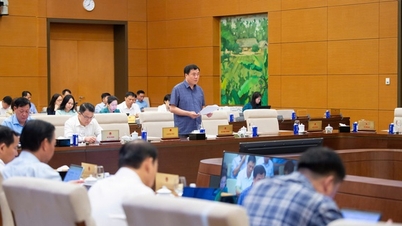















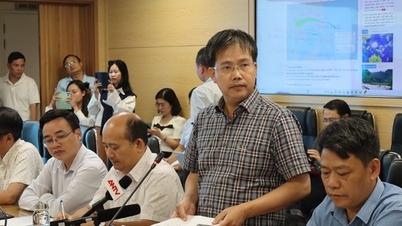

![[Photo] General Secretary To Lam presents the First Class Labor Medal to the Vietnam National Energy and Industry Group](https://vphoto.vietnam.vn/thumb/1200x675/vietnam/resource/IMAGE/2025/9/21/0ad2d50e1c274a55a3736500c5f262e5)







































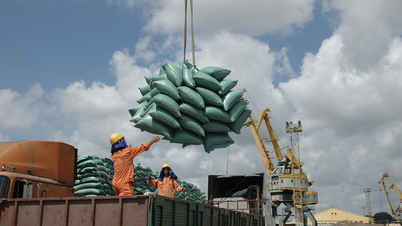






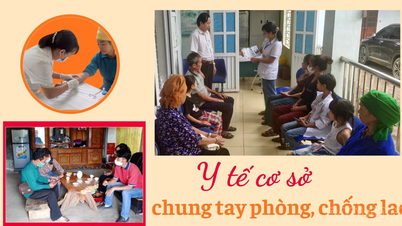






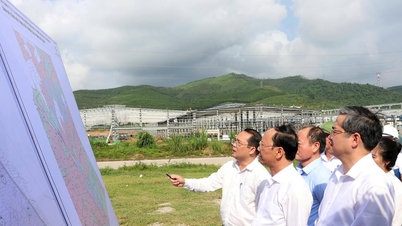













Comment (0)